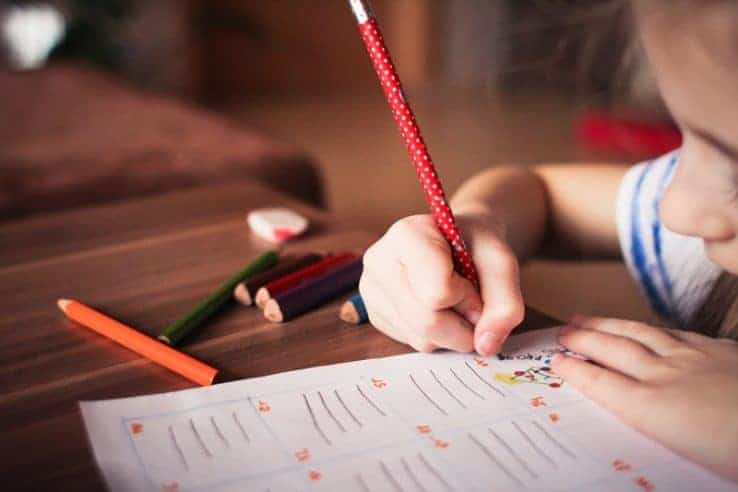Insights and Signs of a Gifted Child- How do you know that you have one?
We all love our children, and we can be incredibly proud of all that they achieve. However, beyond this, it can be difficult to truly decipher whether your child is genuinely gifted, particularly as you’re undoubtedly biased as to their abilities and skillsets. And whilst schools can officially identify such children through means including screening tests, IQ tests, assessment of achievement scores and past grades, relying upon them alone can be a little bit like a roll of a dice, particularly where your child may be within some of the busiest classrooms with poor teacher-to-child ratios. So here we tell you all about how you can tell whether your child is gifted and explain a little bit of the science behind the mind of a naturally talented child.
The science behind the mind of a gifted child
However, beyond this definitively answering, just what makes a child gifted becomes a little murky. A naturally talented child is a product of both geneticists and environmental factors, which influence how the brain develops. However, a leading argument is that gifted children can process information faster due to advanced cognitive skills.
Being gifted may then be down to a couple of possibilities, which researchers are continuing to explore in the hopes of finding a definitive answer as to what makes a child gifted, with these summarised as follows.
– They may have been born with denser neural connections throughout certain areas in their brain, which pertain to the traits within which they are gifted (playing a particular instrument and reading music, for example). These structures then allow for the right experiences to develop, retain and use these connections in the most effective way possible.
– Alternatively, it is argued, gifted children with a sufficient amount of neural connections are provided with plenty of opportunities to form and develop more and more efficient connections through an environment conducive to their learning and
Before we begin: Become accustomed to the signs of a gifted child before school age.
Most schools don’t begin to recognise gifted children until their second or third year within school. By this time, there may have been missed opportunities for placement within a specialist or private school, additionally missing out on any associated scholarships. As an answer to this, you may want to look out for the following signs and consult with a professional if you believe that your child is consistently demonstrating these traits even before school age.
A final important point: Become educated upon ‘Under-Identified’ Children
Unfortunately, our schooling system consistently fails to identify gifted children whose talents may be somewhat hidden by particular conditions, such as ADHD, or through skills lacking in other areas such as organisation. It’s also important to be aware that some gifted children simply do not ‘mesh’ with the learning environment into which they are placed; they may not take to one teacher’s style, whilst they may show signs of excelling under the teaching of another.
Once again, it’s vital to be your child’s ambassador and seek outside professional input in such instances.
Signs of a gifted child
1. Language skills
Gifted children tend to reach language development milestones quicker than their peers. More specifically, this can manifest itself in the following ways:
– A developed vocabulary and an ability to learn new words with ease;
– A tendency to speak quickly;
– An early adoption of long, complex sentences;
– Early reading;
– Consistent inquisitiveness as to what they may hear and see, requiring solid responses and explanations.
2. Learning abilities
Every child is naturally born with the desire to learn. However, for the gifted, this desire may be accompanied by genuine joy in learning about the relationship between themselves and their surroundings. A gifted child would, therefore:
– Pick-up on new ideas and skills with ease;
– Become highly focused when learning about particular areas of interest (which could be anything from bugs to space);
– Ask advanced questions;
– Demonstrate a more profound than expected knowledge on certain tops;
– Have an excellent memory;
– Be a creative thinker, finding new ways to solve problems;
– Seek to read on their own and undertake tasks with little to no direction from the adults around them;
– Be an independent learner and reader upon topics of interest.
3. Emotional and Behavioural traits
Gifted children tend to be more emotionally intense than other children and are often more sensitive to others’ feelings, demonstratin
– Demonstrate fast thinking and talking;
– Show good leadership qualities;
– Have an ability to relate to older children;
– Enjoy alone time;
– Appreciate natural beauty and art.
4. Hidden Gifts
Lastly, it’s important to remember that gifted children may show some or all of these traits and may be subject to differing develop
What’s more, gifted children aren’t necessarily those who are high academic achievers, and they may require specialist guidance upon progressing their natural abilities, as well as the suitable learning environments in which to flourish truly. Perfect examples of this may include children who have ADHD or other learning conditions and children who may tend to be perfectionists, where focus comes to the detriment of task completion times.
Sources
https://www.psychologytoday.com/blog/gifted-kids/201105/is-your-child-gifted-what-look-and-why-you-should-know







